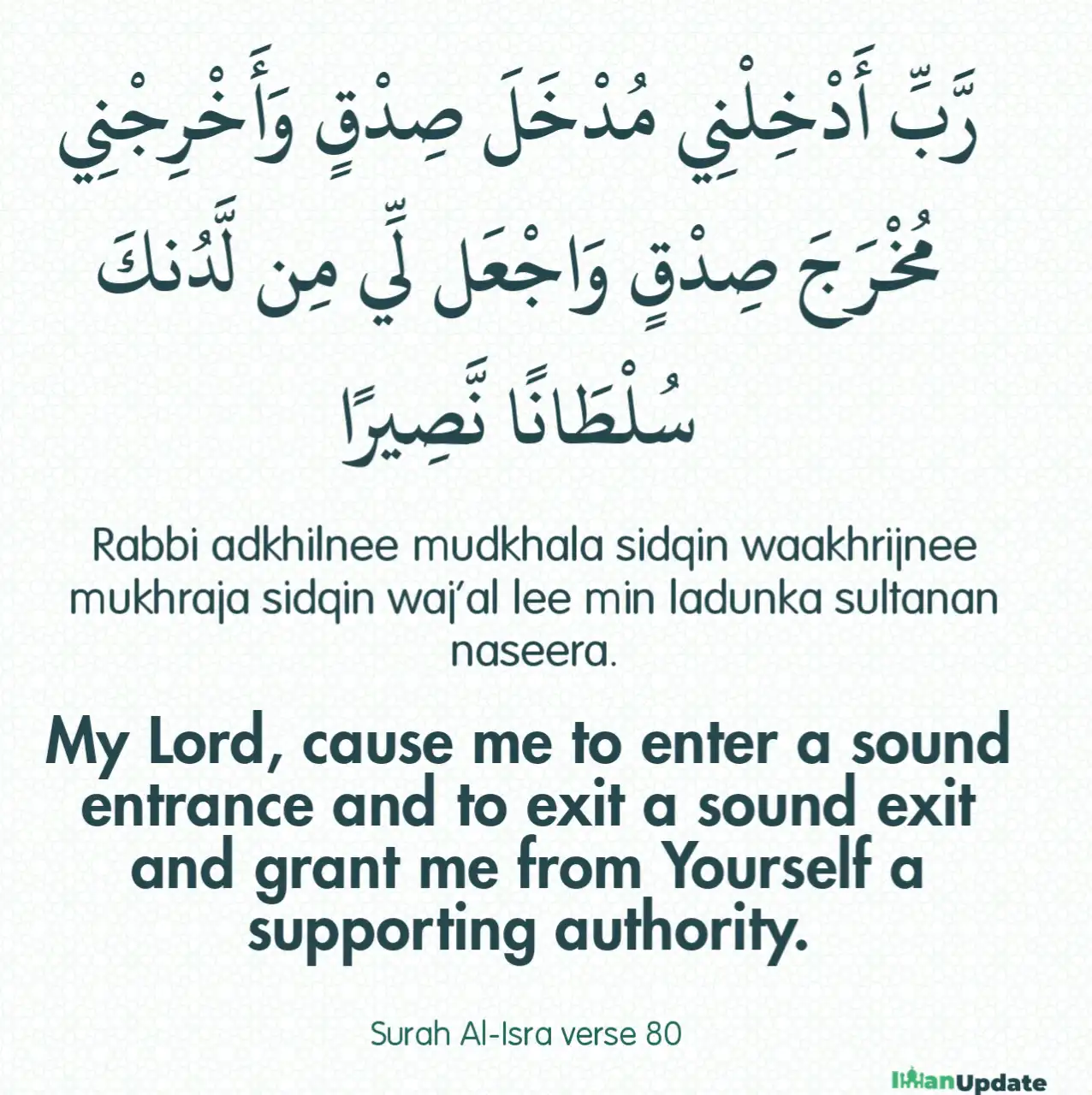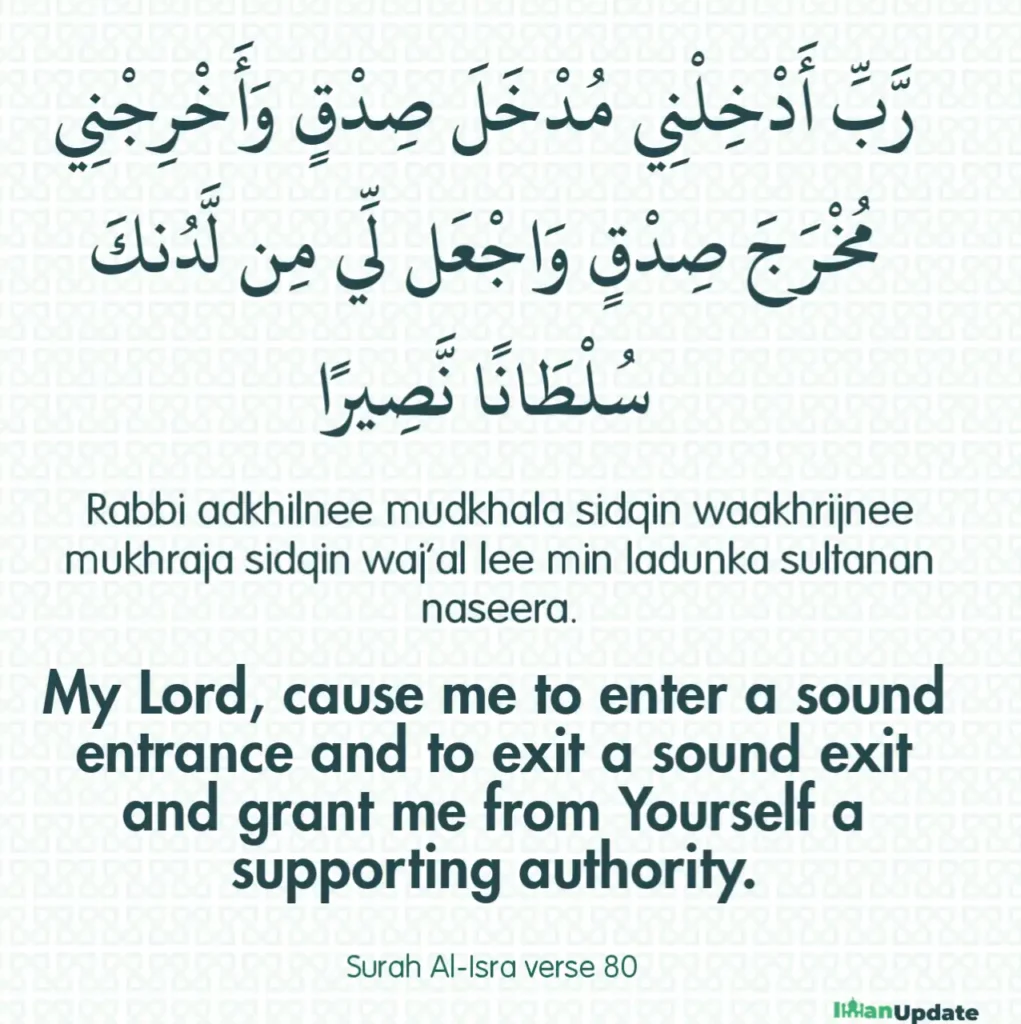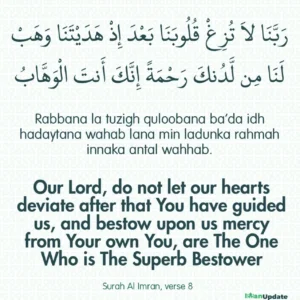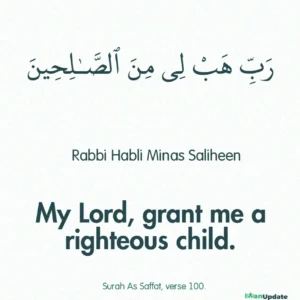Rabbi Adkhilni Mudkhala Sidqin Meaning & Arabic Text

Rabbi adkhilni mudkhala sidqin is the dua of Prophet Mohammad (Peace be upon him) dua from the Holy Quran, specifically in Surah Al-Isra, verse 80.
This beautiful supplication is a heartfelt request to Allah, seeking entry into the realm of truth and righteousness.
Rabbi Adkhilni Mudkhala Sidqin in Arabic Text
رَّبِّ أَدْخِلْنِي مُدْخَلَ صِدْقٍ وَأَخْرِجْنِي مُخْرَجَ صِدْقٍ وَاجْعَل لِّي مِن لَّدُنكَ سُلْطَانًا نَّصِيرًا
Transliteration
Rabbi adkhilnee mudkhala sidqin waakhrijnee mukhraja sidqin waj’al lee min ladunka sultanan naseera.
Rabbi Adkhilni Mudkhala Sidqin Meaning in English
Rabbi adkhilni mudkhala means My Lord, cause me to enter a sound entrance and to exit a sound exit and grant me from Yourself a supporting authority.
According to Islamic scholars, the dua ‘Rabbi adkhilni mudkhala sidqin’ offers a multitude of benefits and can be recited for various purposes, including:
- Achieving triumph and success
- Gaining victory over disbelievers and enemies
- Fulfilling diverse needs, such as:
- Marriage
- Business
- Job opportunities
- Exam success
- Seeking Allah’s help and assistance in all affairs
This versatile dua can be recited in various situations, like:
- Before exams or tests
- During job interviews
- When facing challenges or difficulties
- In times of need or uncertainty
By reciting this dua, one can invoke Allah’s guidance, support, and mercy, leading to success and triumph in all aspects of life.

According to scholars, the verse from Surah Al-Isra (17:80) was revealed when Prophet Muhammad (peace be upon him) migrated from Makkah to Madinah.
Allah instructed him to supplicate for a safe exit from the harmful environment of polytheists and a tranquil entrance into a secure place.
The Prophet obeyed, and the verse was revealed. Imam Tirmidhi and Ibn Abbas narrated that the Prophet was commanded to migrate, and this verse was revealed.
Dhahak interpreted it as the Prophet’s migration from Makkah and his triumphant return on the day of conquest. The emphasis on entrance over exit in the verse signifies that entering Makkah was the ultimate goal.
This interpretation is supported by renowned scholars like al-Tabari and Ibn Kathir, as stated in “Tafsir al-Wasit” (5/793). This understanding is the most accurate explanation of the verse’s meaning.
RELATED POSTS:
According to IslamQA, it is permissible to generalize the verse from Surah Al-Isra (17:80) as a supplication, drawing inspiration from the Quran. The essence of this dua is to ask Allah to establish all affairs based on truth.
Scholars like Ibn Atiyyah and Al-Saadi have interpreted the verse to encompass seeking improvement in all aspects of life, trusting divine decrees, and seeking sincerity and conformity in all matters.
They emphasize seeking a supporting authority from Allah, representing a state of goodness, beneficial knowledge, and righteous deeds.
Even Umar ibn Abdul Aziz, a renowned caliph, would recite a similar supplication when entering a house, highlighting the verse’s broader application in seeking Allah’s guidance and blessings in all aspects of life.







online canadian pharmacy review
https://expresscanadapharm.shop/# Express Canada Pharm
best canadian online pharmacy